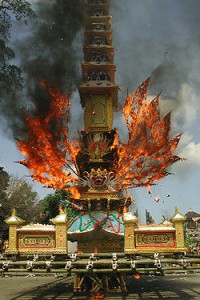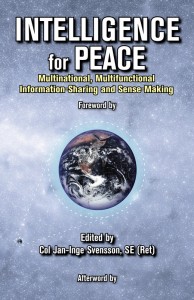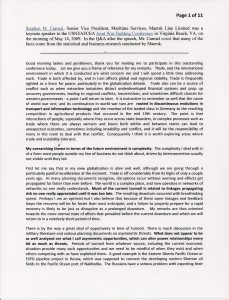
Death in the Recession: More Bodies Left Unburied
By ALISON STATEMAN / LOS ANGELES
Fri Aug 7, 3:50 am ET
Have economic times gotten so bad that some of the dead are going unburied? Several large counties across the country are experiencing unprecedented increases in the number of unclaimed deceased – not only because the dead people could not be identified, were indigent or were estranged from their family, but also apparently because more people simply cannot afford to bury or cremate their loved ones. The phenomenon has increased costs for local governments, which have to dispose of the bodies.
. . . . . . .
Samuels, a retired police officer who has been with the medical examiner's office for 13 years, says he's never seen the situation this bad. “Some people just never had the money, but now we're getting people who at one time may have had the money to do this and they just can't. We have people losing their homes. People are finally feeling the economic strain completely. When people don't have jobs, you have people who can't eat, so burying someone is not high up on their list of what they have to do.”
+++++++Phi Beta Iota Editorial Comment+++++++

The Obama Administration appears oblivious to the pain and suffering sweeping across America. The grass-roots anger is emergent and we agree with those who anticipate violence as well as non-negotiable demands for free and open elections in 2010.
Whiles costs vary, from $750 for a county burial to $7,500 and up for a formal burial, it costs from zero to $750 for cremation. Some religions forbid cremation and some, such as the Roman Catholic church, demand burial of cremated remains, which we consider a scam to keep the burial end of church revenue alive (pun intended). Click on the grpahic for a link to a first-class review of cremation at Wiki-pedia. In our view, for real estate as well as health reasons, the world is eventually going to have to go toward an end to cemeteries, and cremation or serial burial in reusable land.





